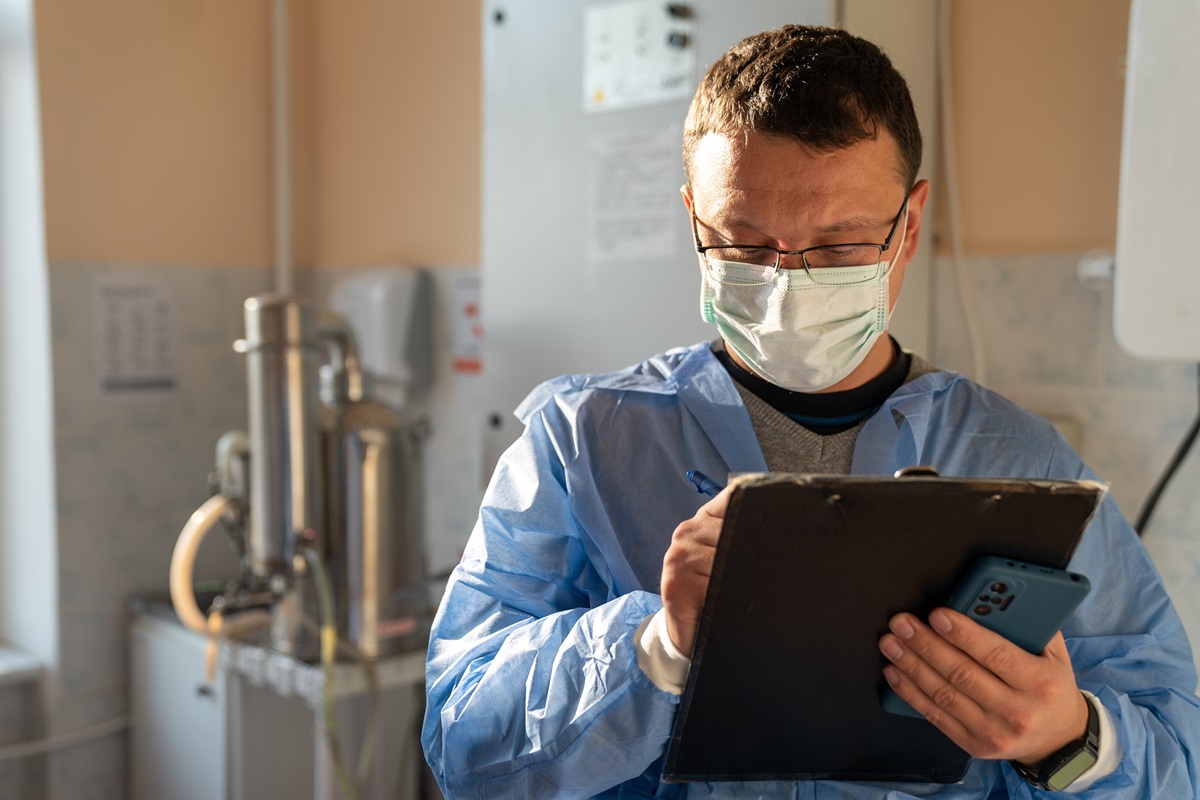Infection
WHO infection prevention and control minimum requirements adopted at national level in Ukraine
Preventing harm to patients and health workers in health-care facilities is fundamental to delivering safe, high-quality health-care services, as well as reducing health-care-associated infections and tackling the growing threat of antimicrobial resistance (AMR). This requires the implementation of robust infection prevention and control (IPC) programmes on both facility and national levels.
WHO IPC requirements are identified as an area for development for Member States, as the International Health Regulations (2005) acknowledge them as a core capacity for the surveillance of and response to potential public health events of international concern. Ukraine has taken another stride in this direction by making WHO IPC requirements mandatory for all health-care facilities in the country from 2024.
“This is a step towards ensuring quality of care and improving patient safety, as well as protecting all those providing care in the health system. The fulfilment of all IPC core components takes time, so it is critical to start with at least the minimum IPC requirements and gradually progress to full implementation on both national and facility levels,” explains Dr Jarno Habicht, WHO Representative in Ukraine.
The development of the legal framework for the implementation of WHO’s IPC minimum requirements at the national level took several years. Mr Roman Kolesnyk, Head of the AMR and IPC Unit at the Public Health Center of Ukraine, points out, “In 2017 we had a few health-care facilities participating in a study to assess the situation of IPC. This study showed that the level was either dissatisfactory or basic.”
The first regulations to improve the situation were adopted in 2020. In 2021 another study was conducted to assess the impact of the new regulations, which showed that the implementation process had started but further steps were needed.
WHO’s IPC minimum requirements in action
Now, with a new decree from the Cabinet of Ministers in effect, all health-care facilities must implement IPC minimum requirements as outlined by WHO. Starting from 2024, these minimum requirements will be mandatory criteria for receiving state funding. All facilities will have to recalibrate their administrative structure by appointing dedicated personnel responsible for the implementation of IPC minimum requirements and for conducting regular evaluations in accordance with WHO recommendations to monitor progress over time.
“This is an opportunity for health-care facilities to conduct a self-assessment and define what is critically needed, what is viable and what can be postponed. Based on this assessment, they can create an action plan with clearly defined indicators, approve it, and start working on it to ensure better IPC in the facility,” Mr Kolesnyk explains.
The approved plan will then be submitted to the National Health Service of Ukraine, which will oversee its implementation. If a health-care facility does not follow the approved plan, health authorities will follow up with the facility’s leadership to streamline efforts to implement it.
Mr Kolesnyk adds, “Prior to these changes, we had to go to health-care facilities to see what had been done. Now, as action plans will be passed to the national level, we can follow them remotely.”
Empowering IPC excellence
The WHO Country Office in Ukraine conducted several trainings for health-care workers to equip them with the knowledge and skills needed to implement WHO IPC minimum requirements. Now, IPC specialists can also access trainings online and stay up to date with new information.
Mr Kolesnyk underlines that stronger IPC programmes are essential to avert health-care-associated infections and AMR, which can lead to disabilities and death, impacting patients and health-care workers alike.
Dr Arkadii Vodianyk, WHO IPC and AMR Officer in Ukraine, emphasizes, “Establishing the necessary legal framework is an important step forward. Implementing WHO’s minimum IPC requirements will allow us to ensure the provision of safe, high-quality medical care in the future.”
The work to strengthen IPC measures in health-care facilities in Ukraine has been led and coordinated by WHO in collaboration with national authorities and with the financial support of the European Union–WHO initiative on health system development in Ukraine.

